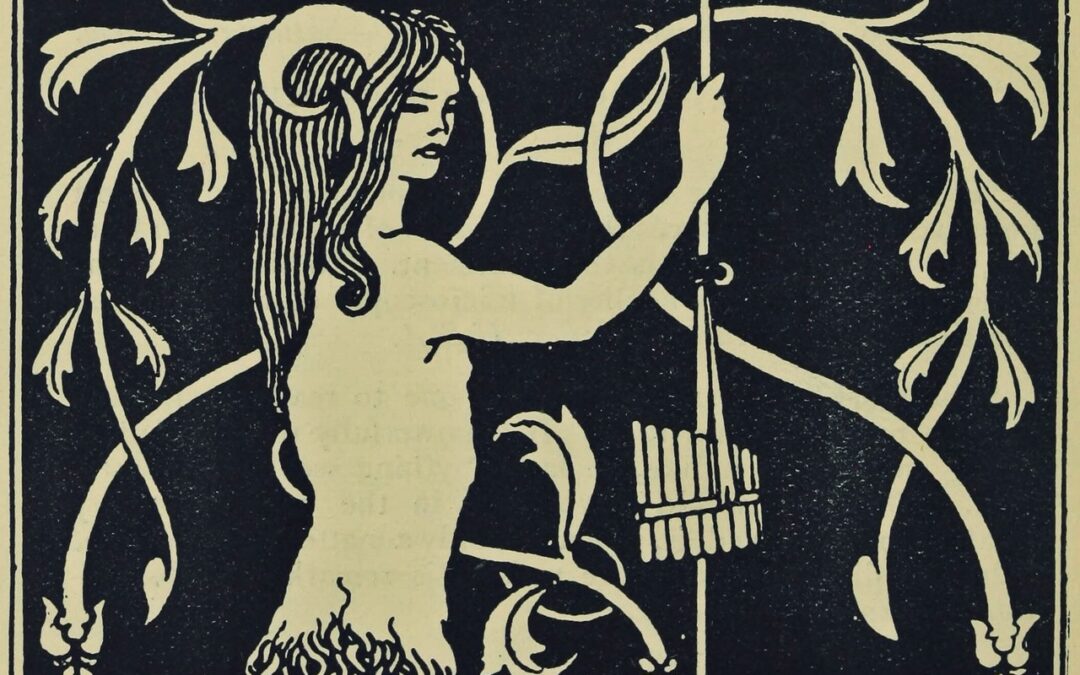“The Story of a Panic” is one of several stories Leonard Wolff complained that were “Pan-ridden.” It was well-known that Pan was code for identifying gay men and women. Woolf’s complaint implies that a Pan story such as “The Story of a Panic” gave Forster’s private life away.
“The Story of a Picnic” is about how the god Pan ravishes a fourteen-year-old English boy named Eustace Robinson. The premise is that Pan, a patron of gay men, lives and will come when he is called. We know that the story was written in 1904 when Forster and his mother were vacationing in Ravello, where the story takes place. In fiction, Eustace achieves a sense of freedom, but Forster’s sexual life remained locked in life. When he returned from Italy, he had his first (brief) affair.
The picnic is remarkable for its description of the panic caused by Pan’s presence that causes the priggish (vulgar) English picnickers to run amok. When they regain their senses, they suspect that something goat-footed has deeply changed the character of Eustace. Before the panic, Eustace was effeminate, and after the panic is he was unmistakably gay. No one will speak will about their suspicions, but indications suggest that Eustace has been ravished. Goat prints everywhere at the picnic site indicate Pan’s presence, but this is unbelievable. The rape is never directly acknowledged.
The panic begins when Eustace, earnestly making a wooden flute, blasts a loud discordant whistle, and all hell breaks loose. The narrator explains: “It is not possible to describe coherently what happened next: but I, for one, am not ashamed to confess that, though the fair blue sky was above me, and the green spring woods beneath me, the kindest of friends around me, yet I became terribly frightened, more frightened than I ever wish to become again, frightened in a way I never have known either before or after. And in the eyes of the others, too, I saw blank expressionless fear, while their mouths strove in vain to speak and their hands to gesticulate. Yet, all around us were prosperity, beauty, peace, and all was motionless, save the catspaw of wind, now traveling up the ridge on which we stood.”
When the panic begins, the entire party (except for Eustace, though they don’t know this yet) runs pell-mell don hill: Tytler says, “I ran across the little clearing and through the woods and over the undergrowth and the rocks and down the dry torrent beds into the valley below. The sky might have been black as I ran, and the short trees grass, and the hillside a level road; for I saw nothing and heard nothing and felt nothing since all the channels of sense and reason were blocked. It was not the spiritual fear that one has known at other times but brutal overmastering physical fear, stopping up the eyes, and filling the mouth with foul tastes. And it was no ordinary humiliation that survived; for I had been afraid, not as a man, but as a beast.”
The mystical union with the god liberates Eustace’s inhibitions. He wants only his friend Gennaro, an uncouth young waiter at the hotel, with whom he has bonded. Eustace is locked in his room to keep them apart because he must be cured of his desires.
However, in a spontaneous act of selfless love, Gennaro kills himself so that Eustace might be free. “The morning was still far off, but the morning breeze had begun, and more rose leaves fell on us as we carried him in. Signora Scafetti burst into screams at the sight of the dead body, and, far down the valley towards the sea, there still resounded the shouts and the laughter of the escaping boy.”
Food at this picnic is of little consequence. At best, it’s described as “not nice.”
Featured Image: Aubrey Beardsley’s design for Arthur Machen’s The Great God Pan (1894)
See E.M. Forster. “The Story of a Panic.” In The Celestial Omnibus. London, 1911. “The Curate’s Friend” is about a Curate who falls in love with a faun.

